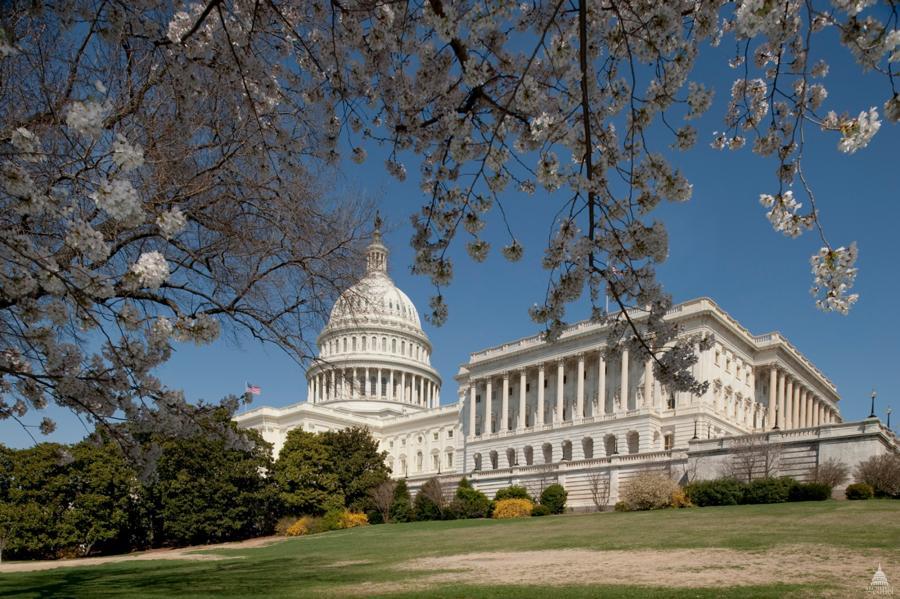Students struggle with government shutdown
October 2, 2013
When the government shut down on Tuesday, Oct. 1, more than one student at Jefferson joked in the halls that maybe high schools should close, too. While public education has escaped closure, many students are finding that the shutdown has repercussions on their daily lives.
The shutdown took effect because Congress wasn’t able to pass a spending bill for the fiscal year, and unlike previous instances in which they came close to shutting down, they were not able to pass a continuing resolution to keep the government funded.
“I don’t think we can afford for it to go longer than the previous record,” senior Alex Le Floch said. “The longer it goes on, the more organizations will have to play catch-up once they get started up again.”
One of the major problems for families in the region around Washington, D.C., is that many government employees are being furloughed during the shutdown. Senior Kameron Wong, a competitive ice skater whose father is an engineer for the Federal Communications Commission (FCC), finds that the shutdown interferes with her practice schedule.
“My mom just told me this morning that I couldn’t take lessons until my dad gets his job back,” Wong said.
The largest change that many students are noticing is that,with the government shutdown, many federal agencies are closed, including museums where students work and volunteer. Senior Aaron Zhao, who worked at the Udvar-Hazy Air and Space Museum over the summer, finds that the shutdown impacts his work schedule.
“The government shutdown has stopped all Smithsonian Institution employees from going to work,” Zhao said. “Also, communication is slow at best because all of the Smithsonian emails are disabled.”
The shutdown is even affecting one of Jefferson’s annual foreign exchange programs with Lycée Roosevelt. Many of the activies the visiting French students participate in outside of Jefferson will be impossible this year if the shutdown doesn’t end before their arrival in early October.
“We had all these plans to go to all the museums. Every year on this trip, they also go to visit the Statue of Liberty,” sophomore Cheryl Mensah said. “To be honest, I’m a little embarassed. They already have such a low opinion of our country.”
Many seniors are feeling the affects of the shutdown on their senior research projects, as their professional connections are restricted from accessing their work emails. Seniors Iris Hyon, Tenzin Lhanze and Connor Phillips were working on their projects for the Astronomy and Astrophysics senior technology laboratory with Dr. Jim Zimbelman, a planetary geologist at the Air and Space Museum.
“We were first introduced to his project through Ms. Hennig, so it was going to be our first time talking to him about the details of the project,” Hyon said. “Tenzin and I wanted to study the northern region of the Tharsis Montes on Mars, so we wanted to ask about him about and just flesh out how our project was going to work.”
Their communication with Zimbelman about their projects will most likely be on hold until the shutdown is over.
“Ms. Hennig kept stressing to us that we needed to be knowledgeable about the topic before we had a conference call with him, so the government shutdown pretty much put a damper on that,” Phillips said.
The mentorship seniors are another group of students who are suffering from the shutdown’s effects. Many of their research mentors work in government-funded agencies such as the National Institutes of Health (NIH), and will not be able to open their laboratories up to their student interns to continue research until the government reopens.
“On my last day in the lab before the government shut down, I spent a lot of time collecting extra data so that I’ll be able to compile it and analyze it without having to be in the lab,” senior Andrea Li said. “I’ll mostly try to work from school on bioinformatics work and analysis of data.”
The United States government has not experienced a shutdown of the federal government since Bill Clinton’s presidency. That year, the government remained shut down for 28 days, bridging the gap between 1995 and 1996. This is the 18th shutdown of the government.
“The reserve can’t last for long without a new budget, so we will default around Oct. 17,” Le Floch said. “All Congress really needs to do is pass some form of a budget, probably in the form of a continuing resolution. It’s Congress’ main job, and it’s pretty pathetic that they can’t even get that done.”






